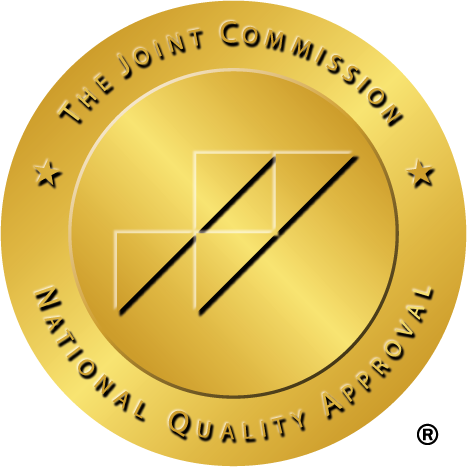Table of Contents
- Adderall®: Drug Facts
- How does Adderall® work?
- Before Taking Adderall®
- Uses For Adderall®
- Is Adderall® for Depression?
- Symptoms of Depression
- Adderall® for Depression
- Side Effects of Adderall®
- Adderall® Withdrawal Symptoms
- Warnings & Interactions
- Overcome Adderall® Addiction and Address Depression. Reclaim Your Life Today!
A question often asked in relation to amphetamines is if Adderall® is for depression. But to understand the answer to this question, it’s important to have some more information about the commonly prescribed drug first.
Adderall® is a brand name of the medication used in the treatment of attention deficit hyperactivity disorder (ADHD) and is a class of amphetamine.
When a patient with ADHD takes this amphetamine medication, it improves their capacity to pay attention, sustain attention during a task, and maintain behavioral control. Additionally, it might aid in work organization and help improve listening skills.
In some cases, Adderall® may sometimes be prescribed as an off-label treatment for depression or other mental health issues.
Adderall®: Drug Facts
Adderall® is an amphetamine/dextroamphetamine, and it belongs to the stimulant drug subclass.
Before we discuss if Adderall® is for depression, the brand name for prescription stimulant medication really has a reputation as a “study drug” instead. On college campuses across the nation, Adderall® is available for both legal and illegal uses.
According to the Drug Enforcement Administration (DEA), Adderall® is classified as a Schedule II controlled medication. While schedule II drugs have legitimate medicinal uses, they also carry a high risk of abuse and addiction.
Abusing Adderall® as a stimulant can lead people to later abuse stronger stimulants like methamphetamine and should never be used other than for its prescribed purpose.
How does Adderall® work?
Dextroamphetamine and amphetamine, two central nervous system [1] stimulants, are the main ingredients in Adderall® . When these two substances enter the brain, they behave similarly to the neurotransmitters dopamine, epinephrine (adrenaline), and norepinephrine that are found in the body.
When a person has ADHD, they experience issues with their brain chemistry. By raising dopamine, serotonin, and norepinephrine levels, Adderall® (a psychostimulant) transforms the brain’s overstimulated condition into a normal state of stimulation.
When taking Adderall®, a person might feel overly energetic, attentive, and well-adjusted. The increase in dopamine levels brought on by Adderall® may also result in sensations of euphoria. Additionally, users might feel more confident, experience a rush of exhilaration, have less of an appetite, or need less sleep.
Before Taking Adderall®
Prior to taking Adderall®, you must consult a doctor and discuss your symptoms of ADHD and other mental health conditions. A doctor will test you for signs and symptoms of ADHD and determine the appropriate treatment plan.
It is important to note that prescription stimulants, like Adderall®, have a high risk of drug abuse due to the nature of this medication. Adderall® addiction can happen to anyone who takes it, even those with ADHD, and with it comes a series of side-effects that are undesirable and can be difficult to manage.
When discussing mental health with a doctor, don’t dismiss the real threat taking a stimulant drug poses to your overall health.
Uses For Adderall®
Adderall® is only FDA-approved for the treatment of attention-deficit hyperactivity disorder (ADHD) and narcolepsy. Adderall® use is known to cause addiction with no regard to gender, age, race, or socioeconomic status.
If you have symptoms of ADHD, do not start taking Adderall® without first consulting a doctor to discuss all treatment options.
The drug of choice for treating attention deficit-hyperactivity disorder is Adderall® IR (ADHD). It includes amphetamine salts and dextroamphetamine in their instant-release (IR) formulations.
You might require more than one dose per day because the drug only lasts up to 4 to 6 hours before it starts to take effect. Loss of appetite and trouble sleeping are typical adverse effects. Its great potential for misuse and dependence makes it a restricted substance.
Is Adderall® for Depression?
So, is Adderall® for depression? Adderall® is not an approved treatment option for depression and isn’t considered an antidepressant. Adderall® may be abused by those suffering from depression to start and complete tasks they struggle to keep up with as a result of their depression.
Because of its effects on the brain [2], those experiencing depression may temporarily feel relief due to its relationship with dopamine. However, Adderall® is not a substitute for cognitive behavioral therapy or antidepressants Any benefit someone gets from taking Adderall® without a prescription and for depression is short-lived. In short, Adderall® for depression is not sustainable or correct usage.
Symptoms of Depression
There are numerous and diverse symptoms of depression. Depression is a medical disorder that can create severe, lingering symptoms and seriously impair a person’s ability to go about their daily lives. It is far more than just a sensation of sadness.
Age and sex can affect depression symptoms, but some of the more typical indications of a depressive episode or major depressive disorder include the following:
- Dejection, emptiness, hopelessness, or even impatience, annoyance, and anger
- Suicidal thoughts
- Loss of enjoyment or interest in once-enjoyable activities
- Lethargic
- Problems with memory
- Lack of focus
- Restlessness
- Changes in appetite
- Anxiety
- Urges to self-harm

Not everyone who experiences depression will exhibit all of the aforementioned symptoms, which vary in degree and appearance.
There are many distinct kinds of depression, and the illness can coexist with a number of other physical and mental health issues. For instance, anxiety disorders, attention deficit hyperactivity disorder, personality disorders, diabetes, heart disease, and other medical diseases may co-occur with depression. It is complicated how depression and other disorders interact.
Adderall® for Depression
Using Adderall® for depression is not an approved or a recommended treatment by the food and drug administration. A health professional might approve Adderall® as an off-label treatment for treatment-resistant depression when other antidepressant medications have failed.
Research review from 2015 suggests that stimulants may temporarily lessen the symptoms of depression by enhancing focus, energy, and mood [1]. While this is true, the euphoric “rush” that stimulants can produce is typically fleeting and only offers symptomatic relief in the short term.
In fact, the FDA cautions that taking Adderall® while also having ADHD or certain mental health problems like bipolar disorder, depression, psychosis, or mania may have negative effects.
Before contemplating Adderall® as a therapy option, it’s a good idea to go over your entire physical and mental health history with a healthcare practitioner.
Side Effects of Adderall®
While taking Adderall® for ADHD typically has upsides and genuinely helps the person it’s meant to serve, the effects of Adderall® are well-documented and Adderall® for depression is not meant to be used as a form of depression control.
Adderall® and other stimulants increase blood pressure, body temperature, and heart rate, keeping users awake and alert while reducing hunger. Adderall® abuse or regular use can alter the brain’s structural makeup and how emotions are controlled. They may also be detrimental to the vascular system, heart, lungs, and other internal organs.
Some side effects include:
- Suppression of appetite
- Hyperfocus
- Irritability
- Hypertension
- Tremors
- Mood swings
- Dizziness
- Breathing troubles
- Chest pain
- Heart palpitations
- Insomnia
- Problems with libido
Adderall® Withdrawal Symptoms
When a person becomes dependent on a substance, withdrawal symptoms follow. The same applies to Adderall®. The risk of Adderall® addiction is extremely serious even though the substance isn’t as potent or hazardous as some illicit drugs.
Long-term usage of Adderall® can lead to dependency in those who take medication to address conditions like ADHD. Without assistance, the side effects of Adderall® withdrawal can be unpleasant. Severe depression and suicidal thoughts are two examples of these impacts. These may be more options to consider when it comes to considering Adderall® for depression.
Detoxification support through withdrawal therapy is therefore essential for a positive outcome and the patient’s safety.
Symptoms of Adderall® [3] withdrawal include:
- Depression
- Severe mood swings
- Fatigue
- Lack of focus
- Increased appetite
- Paranoia
- Hallucinations
- Changes in sleep patterns
- Intense dreams
- Anxiety
- Heart palpitations
Warnings & Interactions
Adderall® should never be used under certain conditions. If you have heart problems, hyperthyroidism, glaucoma, or a history of addition, you should not take Adderall®.
Adderall® is frequently combined with other substances, most commonly, alcohol. Alcohol and Adderall® may interact. For instance, taking Adderall® while drinking alcohol will lessen the effects of the alcohol, causing you to consume more than you otherwise would. A serious outcome could be a loss of consciousness.
Additionally, some Adderall® adverse effects may become more likely if alcohol is consumed while on the medication. Increased blood pressure and an erratic or rapid heartbeat are two examples of this. Your risk of a heart attack or stroke can rise as a result of these adverse effects.
Alcohol use might exacerbate the effects of attention deficit hyperactivity disorder (ADHD), for which Adderall® is prescribed.
Overcome Adderall® Addiction and Address Depression. Reclaim Your Life Today!
If you or a loved one is struggling with substance abuse, including Adderall® addiction, or depression, there is hope. At New Waters Recovery, our priority is helping individuals and families recover from addiction with compassion and research-based treatments.
We care about your future and are here to facilitate a seamless transition from living with addiction to thriving and growing. Contact us today to discuss treatment options.
Frequently Asked Questions Related To Adderall®
Sources
- [1] Hobbs, H. Healthline. (2022, May 24). Effects of adderall on the body. Retrieved from https://www.Healthline.com/health/adhd/adderall-effects-on-body on 2023, March 25
- [2] Sheppard, S. Verywell Mind. (2023, February 20). The connection between adderall and depression. Retrieved from https://www.verywellmind.com/adderall-for-depression-4845418 on 2023, March 25
- [3] Osborn, C. Verywell Mind. (2022, December 1). Adderall withdrawal: symptoms, timeline, and treatment. Retrieved from https://www.verywellmind.com/adderall-withdrawal-symptoms-timeline-and-treatment-4177486 on 2023, March 25
New Waters Recovery Editorial GUIDELINES
At New Waters Recovery, we take your health and wellness seriously. We have a thorough process in place to ensure the integrity of information that is displayed on our website. All content published to our site undergoes a rigorous medical review by a doctorate level clinician to ensure medical accuracy. Read More About Our Process






